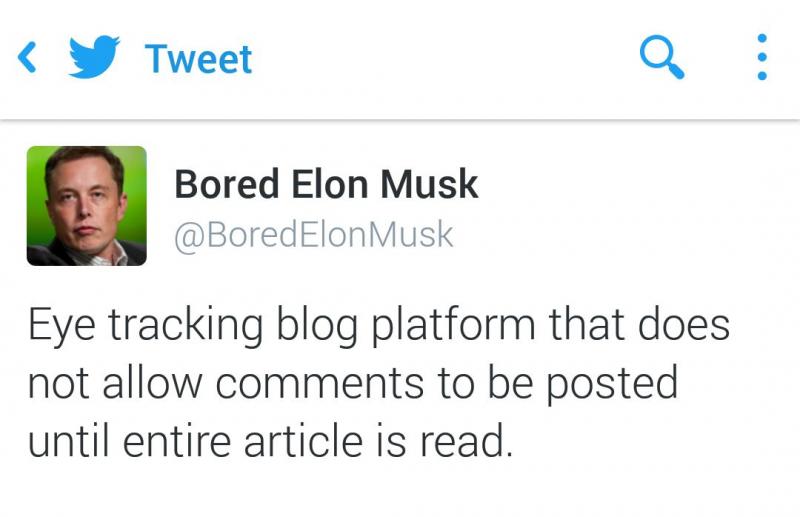Ranter
Join devRant
Do all the things like
++ or -- rants, post your own rants, comment on others' rants and build your customized dev avatar
Sign Up
Pipeless API

From the creators of devRant, Pipeless lets you power real-time personalized recommendations and activity feeds using a simple API
Learn More
Comments
-
 raspark17079yPut a non Dev in front on PC with vi open. Let him try to close vi, covert each character typed to int. Voila! Random generator!
raspark17079yPut a non Dev in front on PC with vi open. Let him try to close vi, covert each character typed to int. Voila! Random generator! -
@LicensedCrime Exactly creating a real random number generator would need you to observe an electron's exact movements and translate it into numbers. Only in quantum realm things are actually random boys and girls ! What you call random in the macro world is just a deterministic reaction with too many variables for a human to compute so it appears random.
-
 jwmorse3159y@Letmecode my gut says he means a truly random number generator with mathematical proof, instead of the psudo random number generators typically used.
jwmorse3159y@Letmecode my gut says he means a truly random number generator with mathematical proof, instead of the psudo random number generators typically used. -
 elazar10169yRandomness is an assertion about the knowledge of an adversary. In order to prove randomness you must prove some lack of knowledge for unknown adversary, but unknown adversary may have arbitrary knowledge, hence mathematically there is no such thing as true randomness without further assumptions (like those in quantum mechanics).
elazar10169yRandomness is an assertion about the knowledge of an adversary. In order to prove randomness you must prove some lack of knowledge for unknown adversary, but unknown adversary may have arbitrary knowledge, hence mathematically there is no such thing as true randomness without further assumptions (like those in quantum mechanics). -
 hisetip8149yYou just can't make something random. It's impossible because every single thing is consequence of another.. nevertheless it is a great idea.. I think the thing we have that is more close to this is random sound waves generated by noise in a quiet room or in someplace like Great Kenya or that. Even that wouldn't be random.
hisetip8149yYou just can't make something random. It's impossible because every single thing is consequence of another.. nevertheless it is a great idea.. I think the thing we have that is more close to this is random sound waves generated by noise in a quiet room or in someplace like Great Kenya or that. Even that wouldn't be random.
We'll wait for quantum shit to happen -
 hisetip8149yStill, that's not random. It is consequence of something. If you have a being sufficiently intelligent to predict the atmosferic sound (which theoretically can exist) then that is not really random too 😊
hisetip8149yStill, that's not random. It is consequence of something. If you have a being sufficiently intelligent to predict the atmosferic sound (which theoretically can exist) then that is not really random too 😊
I love this ahah @tisaconundrum -
How about a webform that allows the user to enter a max and min to constrain the number and then actually has someone generate said random number using a fair dice roll. For extra randomness that number is returned using a udp protocol so whether the actual number is received is well... "random" @h3ll @dmacdo02 @PraveenKishore @Marnsghol @elazar @hisetip
-
 hisetip8149yBut rolling dice is not random!!! There are robots that can predict the face of a rolling dice by almost 90%!!! That is even less random than randomness by atmospheric sound..
hisetip8149yBut rolling dice is not random!!! There are robots that can predict the face of a rolling dice by almost 90%!!! That is even less random than randomness by atmospheric sound..
@brettmoan -
 hisetip8149yFor us it's still random. We cannot be sure if it's really random or if we are not intelligent enough and think it's random
hisetip8149yFor us it's still random. We cannot be sure if it's really random or if we are not intelligent enough and think it's random
@demc -
@hisetip only when the robot knows the weight, initial postition, and force applied during the roll. If none of these are known, then "for us it's still unknown". If we knew these variables, we could determine the with a high level of outcome, so yes the number is still pseudo random, but as far as our current science suggests, and the pattern of discover around things that have thought to be random previously, it's likely just as good as anything else.
You also have the problem of defining what constitutes "random" vs pseudo random in context, if we define an known numbet number of dice, rolled and unknown number of times, in unknown order, with unknown force, in an unknown gravity, with an unknown weight as still pseudo random, then I would argue that we don't have any true evidence to prove or even support that a "true random" actually exists. We just have things that occur that we cannot explain why with our current understanding the universe and our ability to observe it. -
 hisetip8149y@brettmoan I totally agree with you. Therefore, random only exists in theory or (possibly) in quantum mechanics
hisetip8149y@brettmoan I totally agree with you. Therefore, random only exists in theory or (possibly) in quantum mechanics -
@magusd amen. Possibly the only argument for intentional ignorance is to preserve the belief that what's appears to be random is random.
Related Rants

 This would be neat
This would be neat Not in a social network full of developers
Not in a social network full of developers
A random number generator
undefined
impossible_tasks
simplicity
wk31